6 start with H start with H
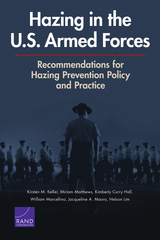

In this second volume in the Hoover Centennial Seminars series, seven scholars reexamine a major segment of Herbert Hoover's public career and in doing so offer fresh perspectives on the political, administrative, and diplomatic history of the 1920s. Drawing upon new materials and new insights, they reconstruct Hoover's transformation of the Commerce secretariat, explore his thinking and action in a variety of policy areas, and explode conventional depictions of Hoover's political conservatism. These essays show a resourceful and creative mind wrestling with the central problems of twentieth-century America and projecting solutions remarkably similar to current proposals for public use of the private sector.
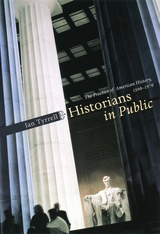
Tyrrell's elegant history of the practice of American history traces debates, beginning shortly after the profession's emergence in American academia, about history's role in school curricula. He also examines the use of historians in and by the government and whether historians should utilize mass media such as film and radio to influence the general public. As Historians in Public shows, the utility of history is a distinctive theme throughout the history of the discipline, as is the attempt to be responsive to public issues among pressure groups.
A superb examination of the practice of American history since the turn of the century, Historians in Public uncovers the often tangled ways history-makers make history-both as artisans and as actors.
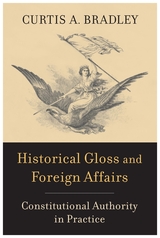
A new interpretation of the constitutional law of foreign affairs, as it has been developed throughout its history by presidents and by Congress.
In the more than 230 years since the Constitution took effect, the constitutional law governing the conduct of foreign affairs has evolved significantly. But that evolution did not come through formal amendments or Supreme Court rulings. Rather, the law has been defined by the practices of Congress and the executive branch, also known as “historical gloss.”
Curtis A. Bradley documents this process in action. He shows that expansions in presidential power over foreign affairs have often been justified by reference to historical gloss, but that Congress has not merely stepped aside. Belying conventional accounts of the “imperial presidency” in foreign affairs, Congress has also benefited from gloss, claiming powers for itself in the international arena not clearly addressed in the constitutional text and disrupting claims of exclusive presidential authority.
Historical Gloss and Foreign Affairs proposes a constitutional theory that can make sense of these legal changes. In contrast, originalist theories of constitutional interpretation often ignore influential post-Founding developments, while nonoriginalist theories tend to focus on judicial decisions rather than the actions and reasoning of Congress and the executive branch. Moreover, the constitutional theories that do focus on practice have typically emphasized changes at particular moments in time. What we see in the constitutional law of foreign affairs, however, is the long-term accumulation of nonjudicial precedents that is characteristic of historical gloss. With gloss confirmed as a prime mover in the development of foreign affairs law, we can begin to recognize its broader status as an important and longstanding form of constitutional reasoning.
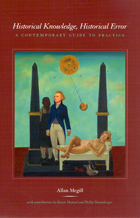
In the past thirty years, historians have broadened the scope of their discipline to include many previously neglected topics and perspectives. They have chronicled language, madness, gender, and sexuality and have experimented with new forms of presentation. They have turned to the histories of non-Western peoples and to the troubled relations between “the West” and the rest. Allan Megill welcomes these developments, but he also suggests that there is now confusion among historians about what counts as a justified account of the past.
In Historical Knowledge, Historical Error, Megill dispels some of the confusion. Here, he discusses issues of narrative, objectivity, and memory. He attacks what he sees as irresponsible uses of evidence while accepting the art of speculation, which incomplete evidence forces upon historians. Along the way, he offers succinct accounts of the epistemological road historians have traveled from Herodotus and Thucydides through Leopold von Ranke and Alexis de Tocqueville, and on to Hayden White, Natalie Zemon Davis, and Lynn Hunt.
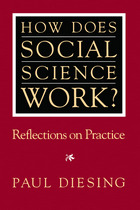
The culmination of a lifetime spent in a variety of fields - sociology, anthropology, economics, psychology, and philosophy of science - -How Does Social Science Work? takes an innovative, sometimes iconoclastic look at social scientists at work in many disciplines. It describes how they investigate and the kinds of truth they produce, illuminating the weaknesses and dangers inherent in their research.
At once an analysis, a critique, and a synthesis, this major study begins by surveying philosophical approaches to hermeneutics, to examine the question of how social science ought to work. It illustrates many of its arguments with untraditional examples, such as the reception of the work of the political biographer Robert Caro to show the hermeneutical problems of ethnographers. The major part of the book surveys sociological, political, and psychological studies of social science to get a rounded picture of how social science works,
Paul Diesling warns that “social science exists between two opposite kinds of degeneration, a value-free professionalism that lives only for publications that show off the latest techniques, and a deep social concern that uses science for propaganda.” He argues for greater self-awareness and humility among social scientists, although he notes that “some social scientists . . . will angrily reject the thought that their personality affects their research in any way.”
This profound and sometimes witty book will appeal to students and practitioners in the social sciences who are ready to take a fresh look at their field. An extensive bibliography provides a wealth of references across an array of social science disciplines.
READERS
Browse our collection.
PUBLISHERS
See BiblioVault's publisher services.
STUDENT SERVICES
Files for college accessibility offices.
UChicago Accessibility Resources
home | accessibility | search | about | contact us
BiblioVault ® 2001 - 2024
The University of Chicago Press









